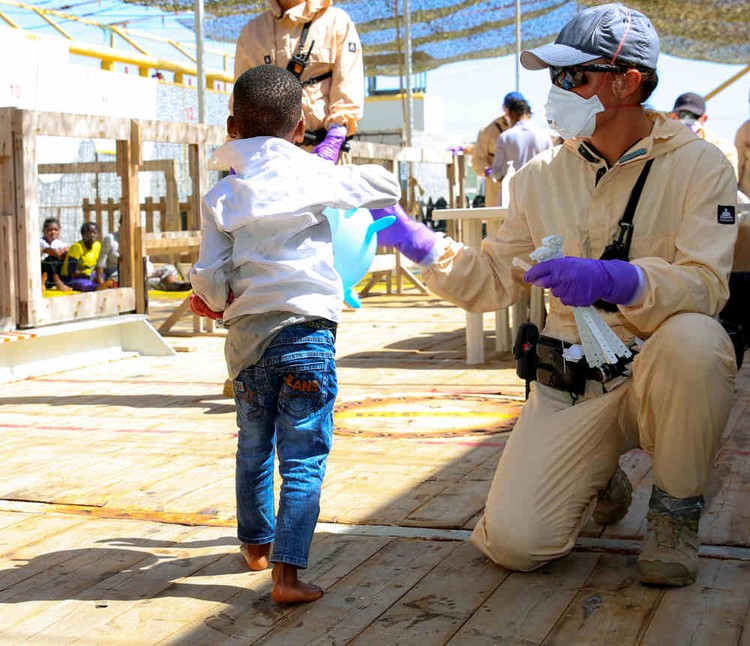Every year millions of people fall into the hands of traffickers.
Trafficking in human beings is one of the most profitable forms of
organised crime, generating billions of Euros for criminal networks.
Often
a border guard is the first – and sometimes only - law enforcement
officer that a victim of human trafficking may ever come in contact
with. This is why Frontex, the European Border and Coast Guard Agency,
trains border guards across Europe on how to detect potential victims of
trafficking and refer them to national authorities. The agency also
organises operations targeting this crime.
Last month, Frontex, along with nine other EU agencies, signed a renewed
commitment to continue assisting EU Member States in implementing the EU Anti-trafficking Directive, stepping up prevention in addressing the whole trafficking chain and countering the culture of impunity of perpetrators. The agencies also committed to improving victims' access to their rights, adopting a gender-specific and child-sensitive approach and intensifying coordination efforts, information sharing and training.
“Trafficking in human beings is a global problem that requires a coordinated response,” said Frontex Deputy Director Berndt Koerner. “On the World Day
against Trafficking in Persons, together with other EU agencies, we are committed to continue fighting against this crime with all our available means,” he added.
Since last year, Frontex has been organising workshops on THB for border and coast guards deployed by Italy and Greece. The officers gather information on criminal groups and pass it on to national police and Europol to conduct investigations.
On the operational level, Frontex supports the fight against THB in operations called Joint Action Days, which are regularly organised under the umbrella of the European Multidisciplinary Platform against Criminal Threats (EMPACT) as part of the EU Policy Cycle.
Frontex also runs a number of operations at international airports aimed at detecting victims of trafficking, especially children. Together with specialists in THB prevention across Europe, Frontex created a manual for border guards and airport staff to help spot children who may be victims of trafficking.
Most of the victims of human trafficking in the EU come from Sub-Saharan Africa, particularly from countries in West Africa. The worrying scale of human trafficking from African countries and the arrival of unaccompanied or separated children who may be at risk of THB, brings to light the vital role of border guards in the fight against human trafficking.
